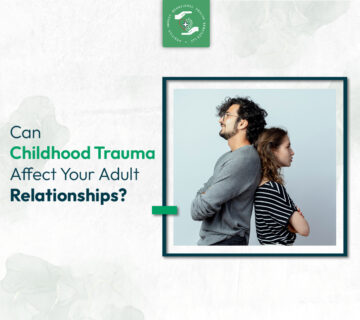Navigating through life’s storms can leave us feeling lost at sea. Trauma counseling stands as a lighthouse, guiding those in need back to shore.
Understanding Trauma and Its Effects
Trauma can be likened to a storm that unexpectedly uproots one’s sense of safety and security. It might stem from a singular event or a series of events that leave an individual feeling helpless and profoundly disturbed. The psychological aftermath of experiencing or witnessing life-threatening situations such as accidents, natural disasters, or personal assaults is profound and varies widely among individuals.
These disturbances can manifest in numerous ways, including intrusive thoughts, emotional numbness, heightened anxiety, and difficulty in coping with daily tasks. Understanding the multifaceted nature of trauma is crucial in recognizing the need for professional intervention.
Signs You May Need Trauma Counseling
It might be time to consider trauma counseling if you’re experiencing persistent feelings of anxiety, depression, or detachment from your surroundings. These emotions can often interfere with your ability to function in your daily life, affecting your relationships, work, and overall well-being.
Physical symptoms such as insomnia, startling easily, and experiencing intense stress reactions to reminders of the traumatic event also signal a need for professional support. It’s important to listen to these signals your body and mind are sending as they indicate when coping mechanisms are overwhelmed.
Additionally, if you find yourself relying on unhealthy coping mechanisms like substance abuse or isolation to deal with your feelings, it may be time to seek help. These strategies often exacerbate the problem, creating a cycle that’s hard to break without professional intervention.
How Trauma Counseling Can Help
Trauma counseling aims to provide a safe, supportive environment where individuals can explore and make sense of their experiences. It’s a place where healing begins, and the impact of trauma can be addressed through various therapeutic approaches.
Through counseling, individuals learn to identify and challenge harmful thought patterns, develop healthy coping mechanisms, and gradually regain a sense of control over their lives. The process is tailored to each person’s unique experience, ensuring a compassionate, understanding approach to recovery.
Choosing the Right Trauma Counseling Approach
Several therapeutic approaches are used in trauma counseling, including Cognitive Behavioral Therapy (CBT), Eye Movement Desensitization and Reprocessing (EMDR), and somatic experiencing. Finding the right fit depends on the individual’s specific needs and the nature of their trauma.
A key factor in choosing the right approach is the therapeutic relationship itself. Feeling safe and supported by your counselor is critical for effective therapy. Don’t hesitate to ask questions and discuss your preferences when selecting a counselor.
Preparing for Your First Trauma Counseling Session
The thought of your first trauma counseling session can be daunting. It’s normal to feel nervous or unsure of what to expect. Before your session, you might find it helpful to write down your thoughts, feelings, and any questions you have. This can provide a starting point for your conversation with your counselor.
Remember, it’s okay to go at your own pace. Your counselor is there to guide and support you, not to rush the process. The first session is often about building trust and establishing a comfortable environment for sharing your story.
Long-Term Benefits of Trauma Counseling
Engaging in trauma counseling can lead to transformative long-term benefits. Many individuals find that they develop a deeper understanding of themselves and their responses to the world around them. Counseling can empower you with the tools to navigate future stresses and challenges more effectively.
Over time, the therapeutic process can help in rebuilding self-esteem and enhancing relationships with others. As the grip of trauma loosens, many discover new strengths and a renewed sense of hope. The journey through trauma counseling, though challenging, is a profound opportunity for personal growth and healing.
Embracing the Journey to Healing
Embarking on a journey through trauma counseling can often seem daunting but, recognizing the signs and knowing when it’s time to seek help is the first step towards healing. With the right support and counseling approach, individuals can navigate their way through the aftermath of trauma, towards a future filled with hope and resilience.






No comment